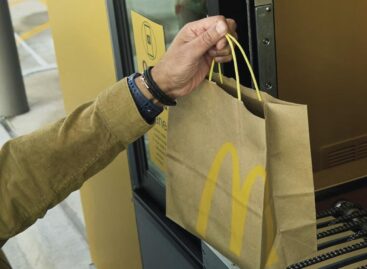Infection risk from fresh vegetables: the McDonald’s E. coli outbreak and the challenges of fast food
American fast food chains were forced to take a drastic step on Thursday: onions were temporarily removed from the menu at some McDonald’s restaurants after the fresh vegetable emerged as the source of an E. coli outbreak. The outbreak, which sickened at least 75 people and killed one person in the Midwest and western states, highlighted a recurring problem for restaurants: keeping fresh vegetables free of contamination is more challenging than keeping beef safe.
The impact of the E. coli outbreak on McDonald’s
 McDonald’s has suspended sourcing onions from Taylor Farms’ Colorado Springs plant at nearly 900 restaurants in several states. Onions can also be found in the company’s popular Quarter Pounder, which has been taken off the menu at many locations. Of the 61 people affected by the E. coli outbreak, 22 were hospitalized, and two severe cases developed hemolytic uremic syndrome, which can also cause kidney failure.
McDonald’s has suspended sourcing onions from Taylor Farms’ Colorado Springs plant at nearly 900 restaurants in several states. Onions can also be found in the company’s popular Quarter Pounder, which has been taken off the menu at many locations. Of the 61 people affected by the E. coli outbreak, 22 were hospitalized, and two severe cases developed hemolytic uremic syndrome, which can also cause kidney failure.
Why are fresh vegetables more risky?
Cases of beef contamination have declined in recent years after US federal health regulators tightened their grip on the E. coli outbreak linked to the Jack in the Box chain that sickened more than 170 people and caused four deaths. The meats are disinfected by heat treatment, which acts as a kind of “miracle drug” because it kills pathogens, explains Donald Schaffner, a food safety expert at Rutgers University.
Fresh vegetables, on the other hand, are not cooked, so removing impurities is more challenging. Although produce is washed and disinfected on a large scale, experts say disinfection procedures and testing are not always able to detect even the lowest levels of contamination. Growing fresh produce outdoors further increases the risk of infection, as irrigation water can be contaminated with animal feces, which is a major source of E. coli.
Related news
McDonald’s Christmas commercial sparks controversy
🎧 Hallgasd a cikket: Lejátszás Szünet Folytatás Leállítás Nyelv: Auto…
Read more >Related news
Hétéves növekedési stratégiát jelentett be az Auchan
🎧 Hallgasd a cikket: Lejátszás Szünet Folytatás Leállítás Nyelv: Auto…
Read more >(HU) METRO Gasztro Fesztivál a SIRHA Budapesten – Élmény, inspiráció és valódi megoldások a HoReCa-szakmának
🎧 Hallgasd a cikket: Lejátszás Szünet Folytatás Leállítás Nyelv: Auto…
Read more >







